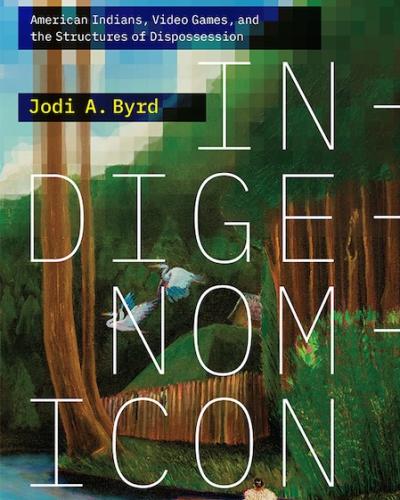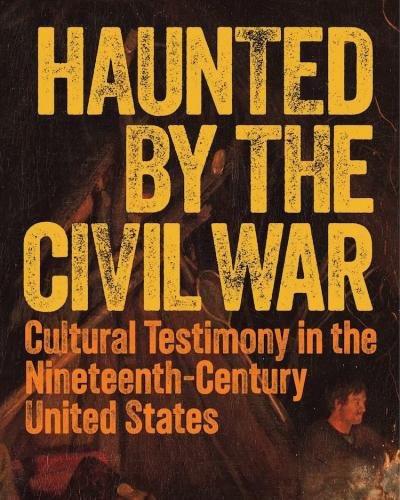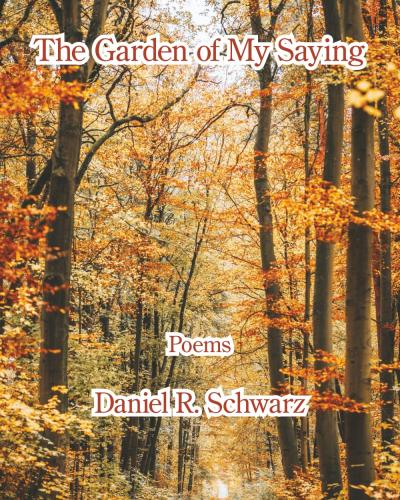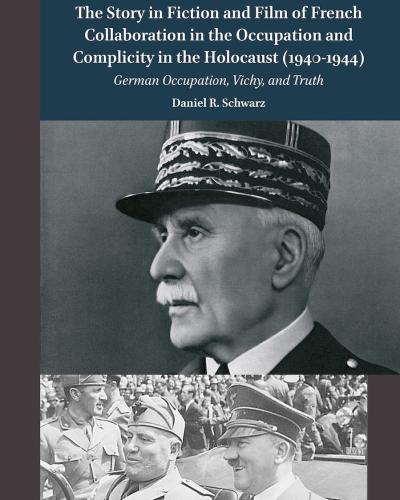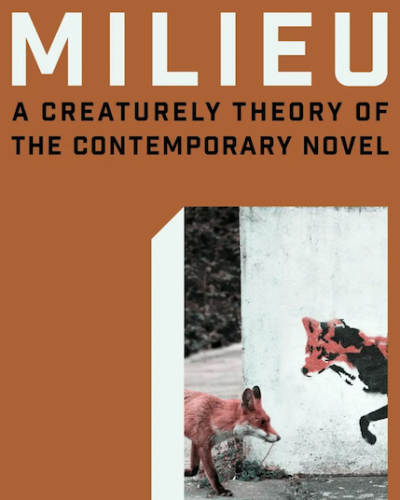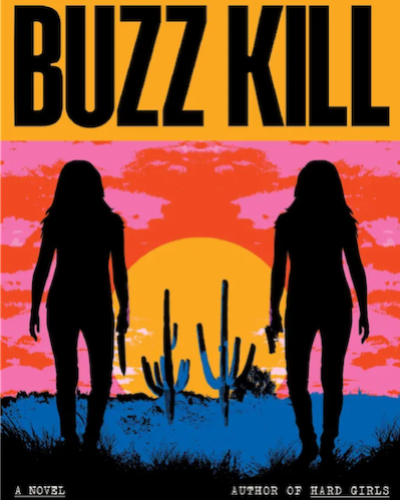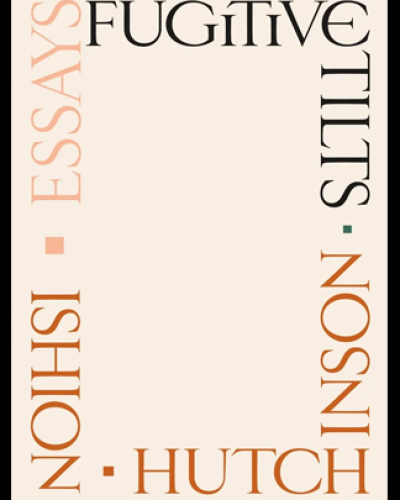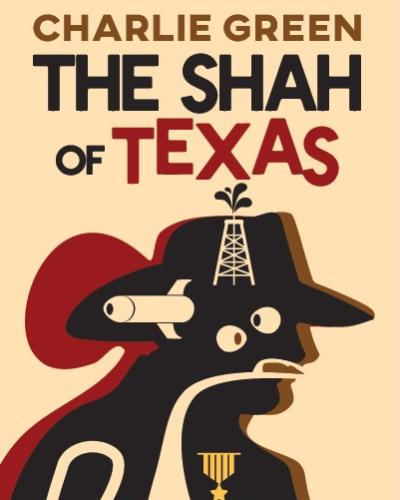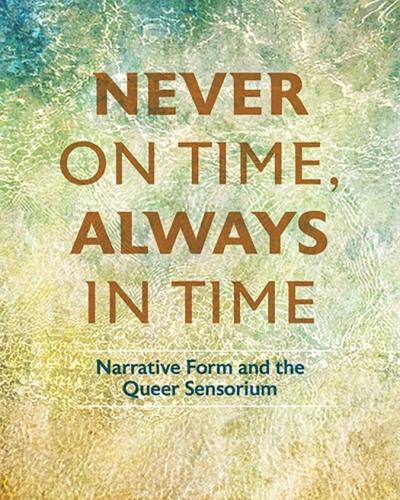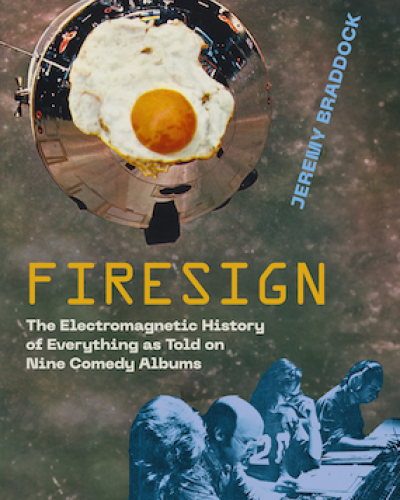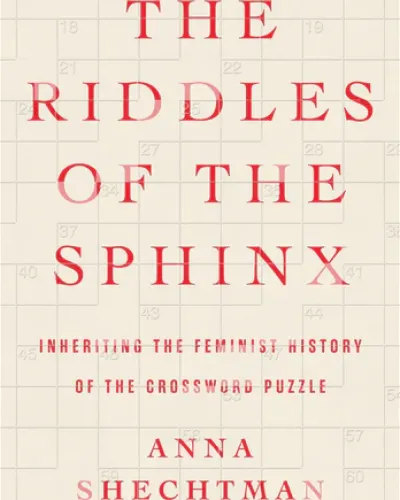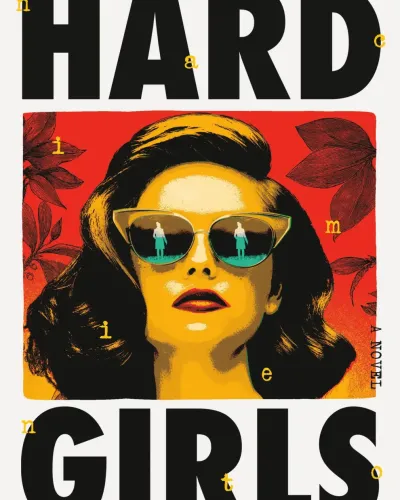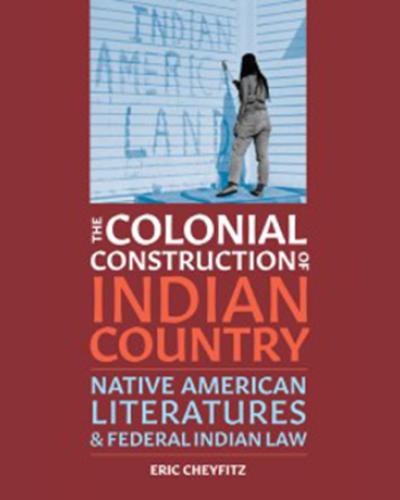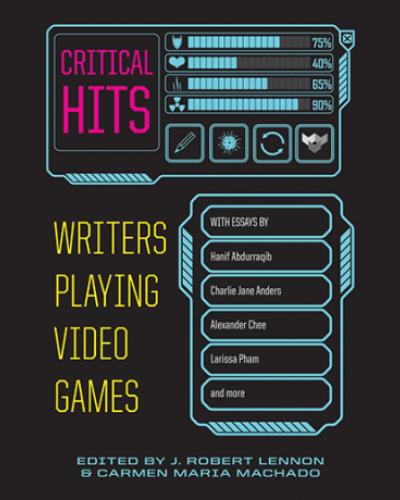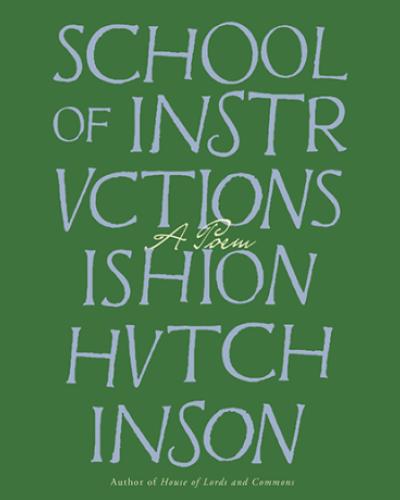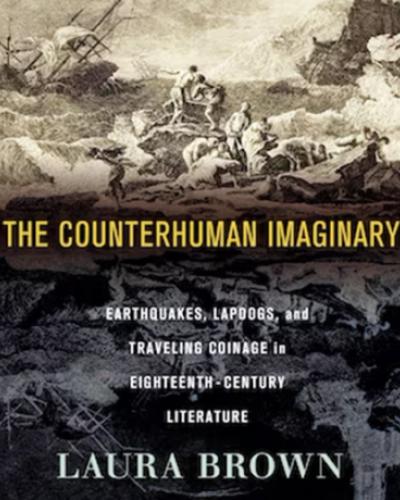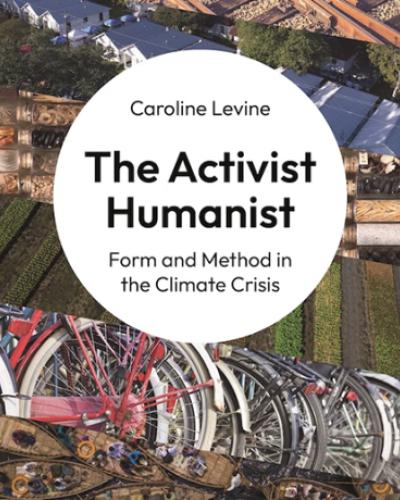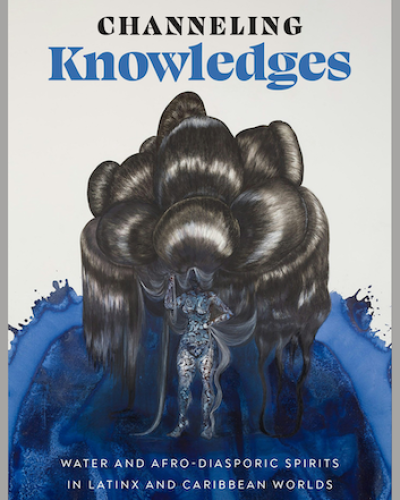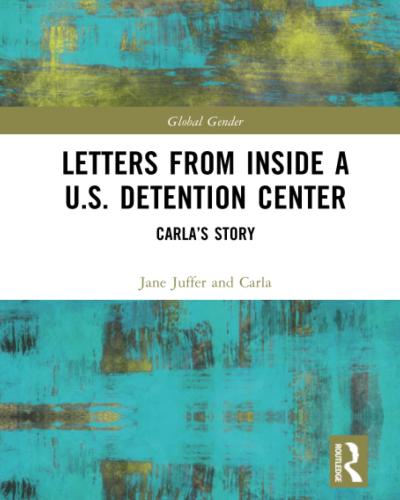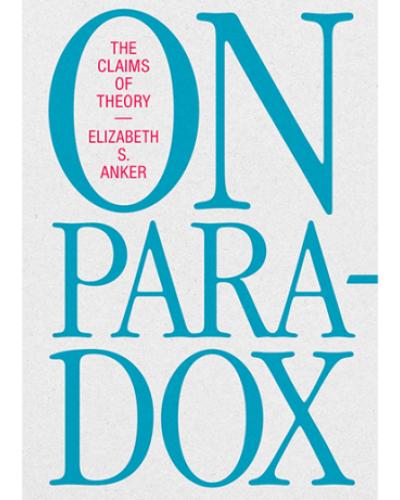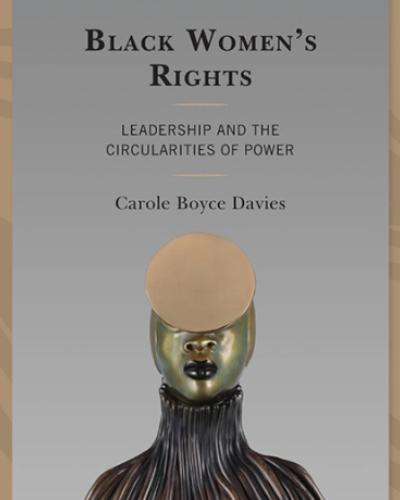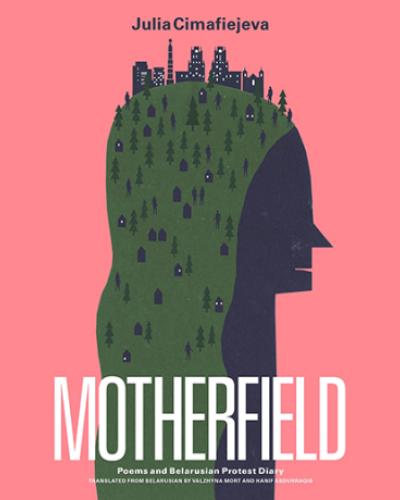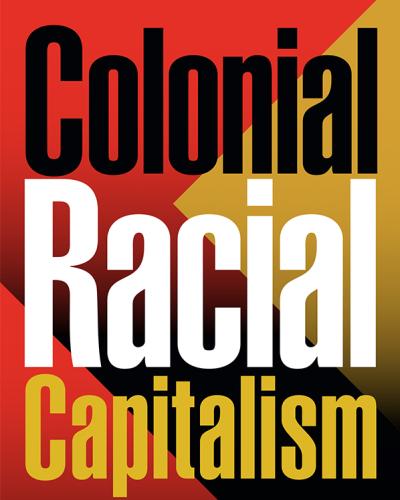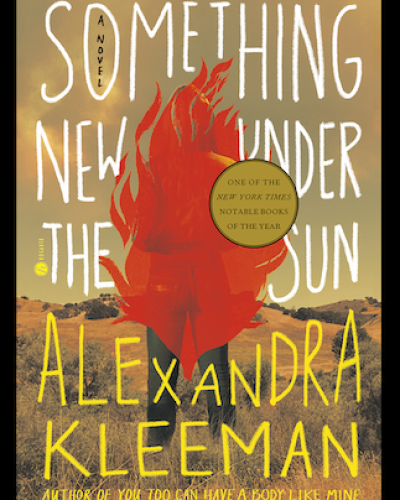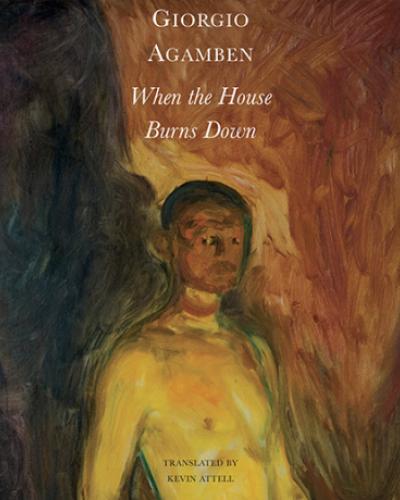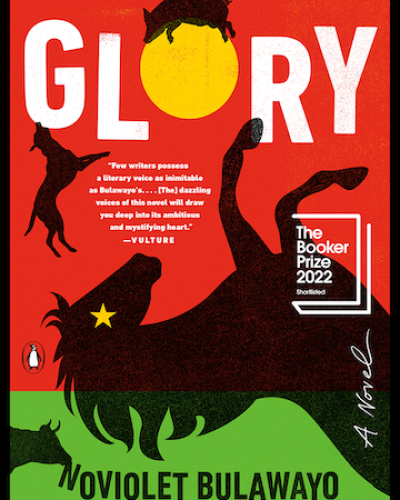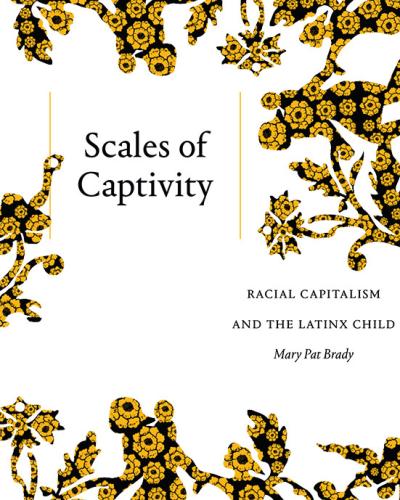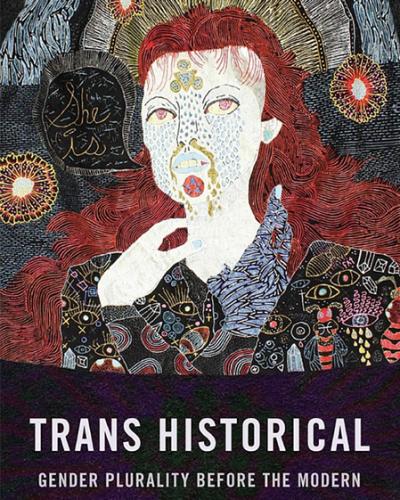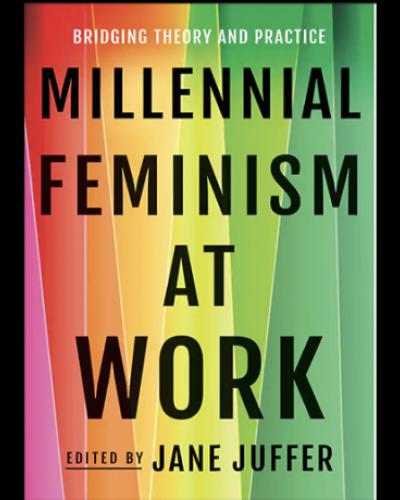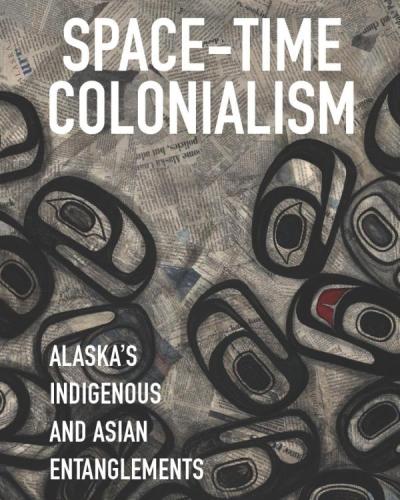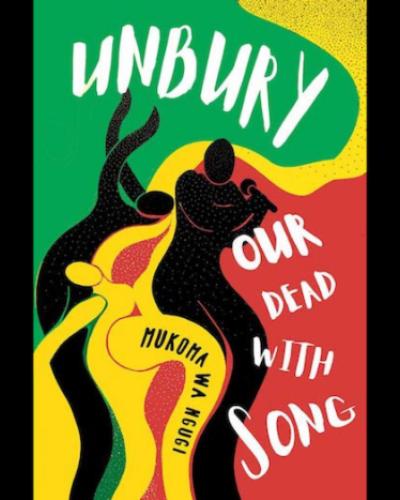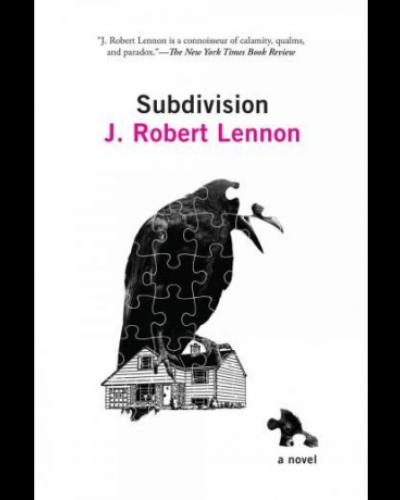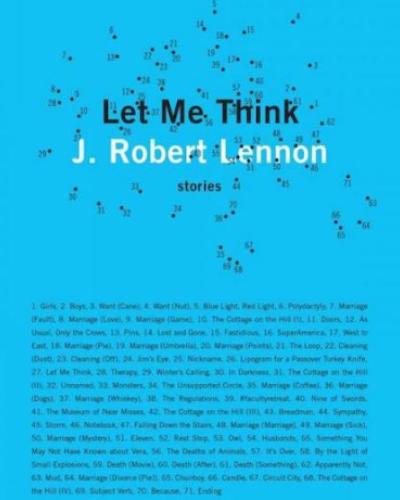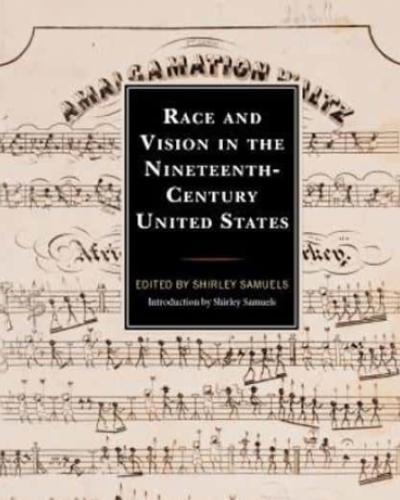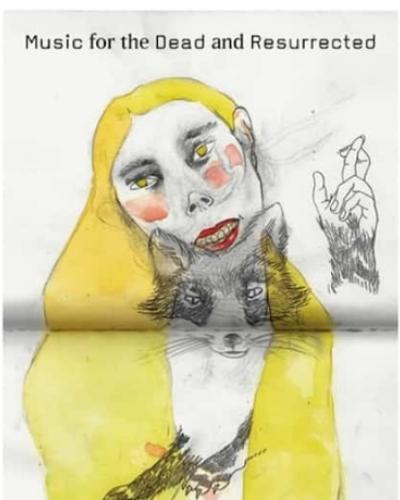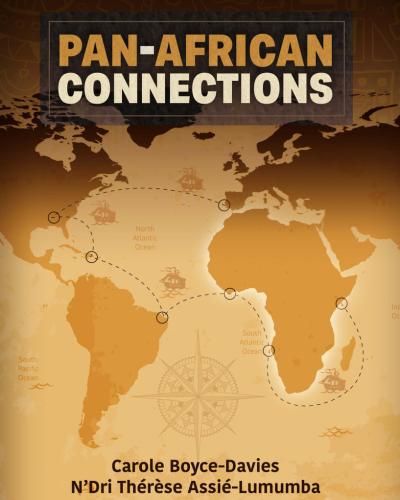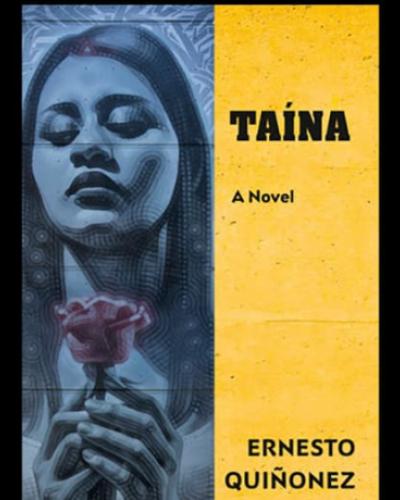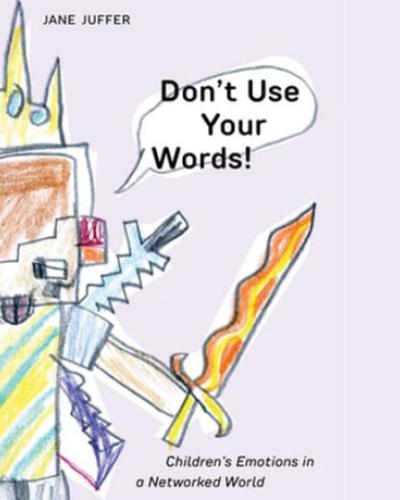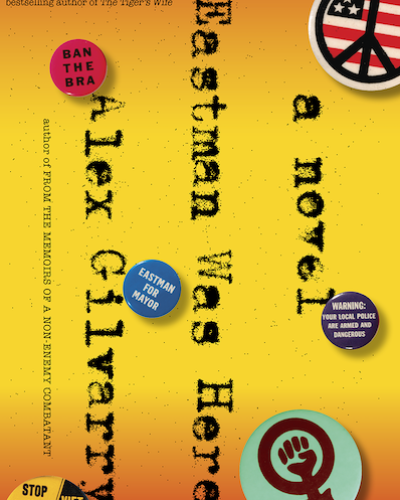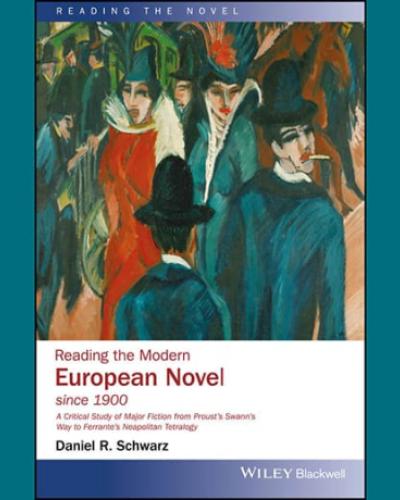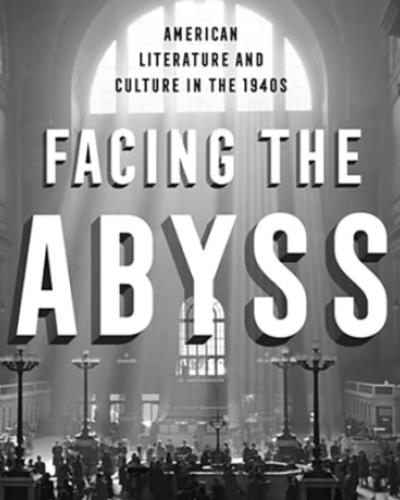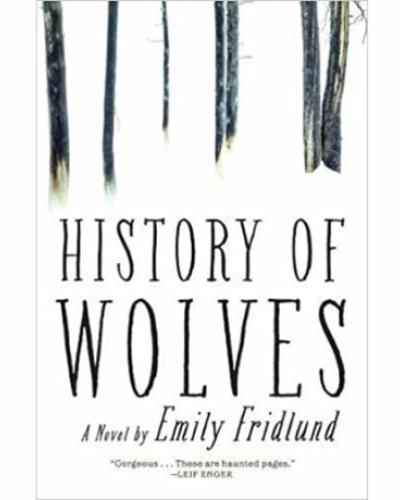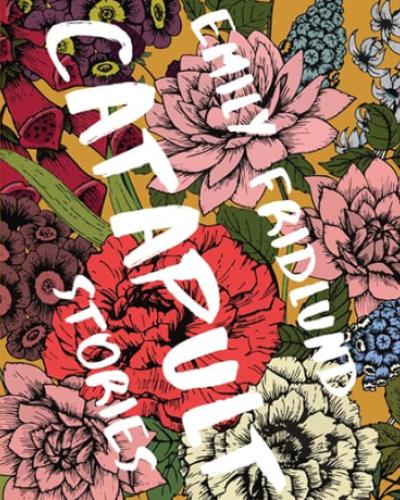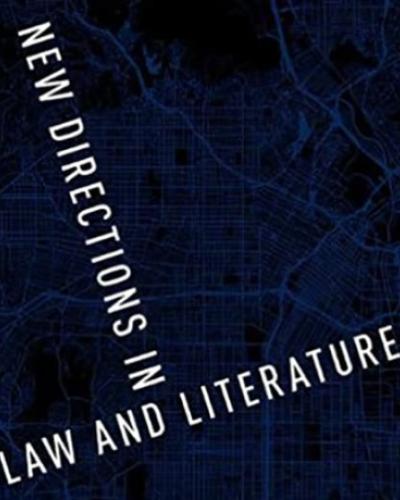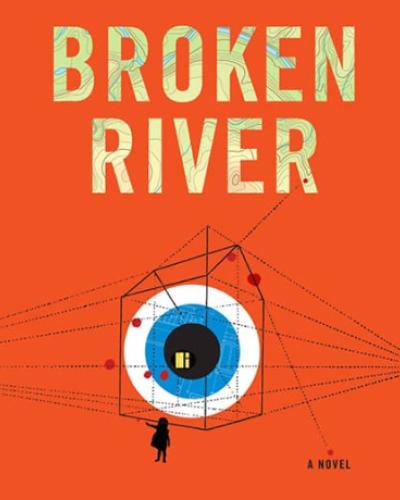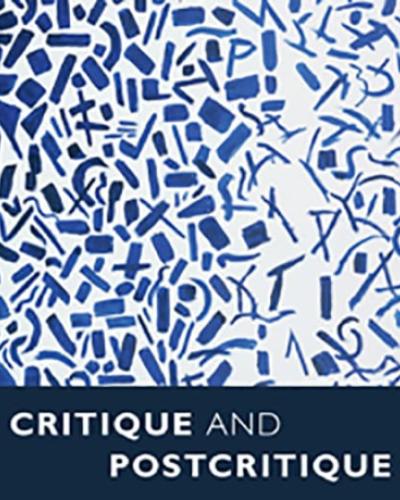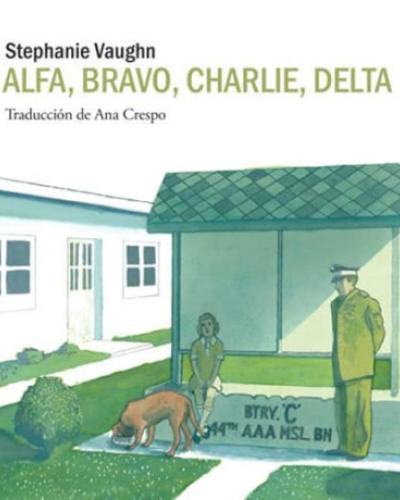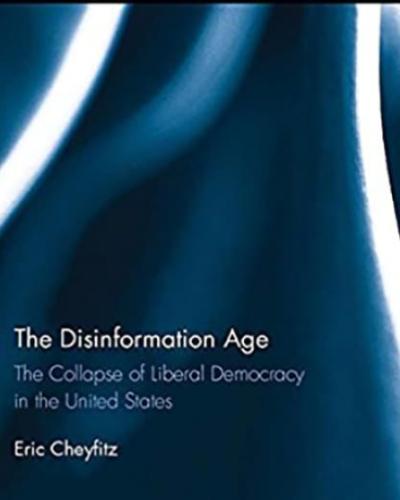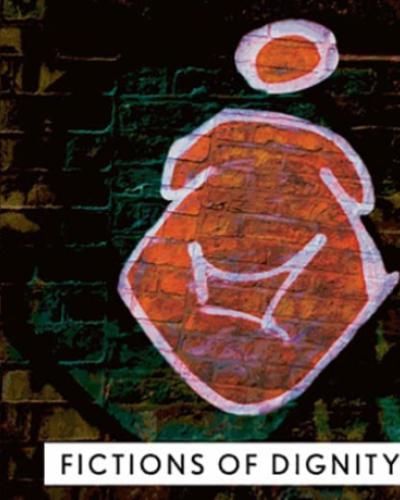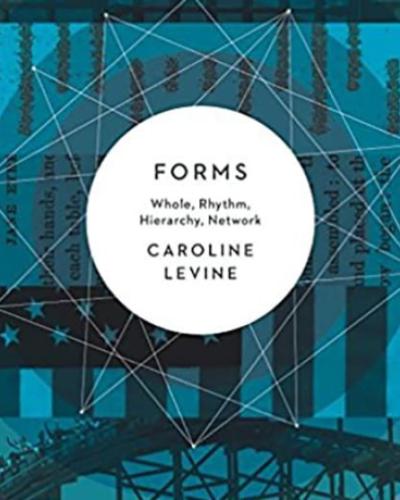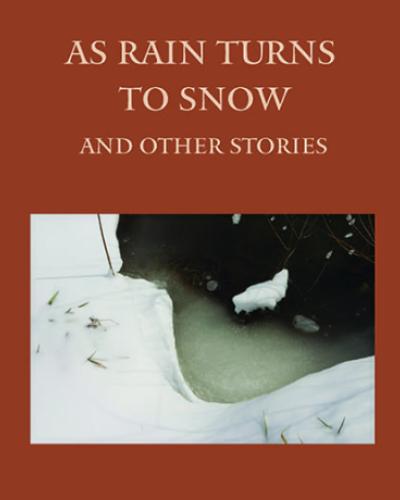Indigenomicon: American Indians, Video Games, and the Structures of Dispossession
Settler colonial studies and Indigenous studies are often assumed to be the same intellectual project. In Indigenomicon, Jodi A. Byrd examines the differences between the two fields by bringing video game studies and Indigenous studies into conversation with Black studies, queer studies, and Indigenous feminist critique. Byrd theorizes “the image of the law of the Indigenous” as structuring dispossession in games including Assassin’s Creed, Animal Crossing, BioShock Infinite, and Demon Souls. They demonstrate how games and play might reveal histories of slavery, genocide, and theft of Indigenous lands even as their structures obscure Indigenous spatial and embodied practices that prioritize relationships with land, water, plants, and spirits. With ground and relationality defined as key concepts, Byrd centers Indigenous visions of dystopias to reveal how game spaces encode settler structures of governance even as the design of games might yet provide vital modes of resistance to Indigenous erasure.
Haunted by the Civil War: Cultural Testimony in the Nineteenth-Century United States
In Haunted by the Civil War, Shirley Samuels explores the work of Walt Whitman, Emily Dickinson, Herman Melville, Frederick Douglass, Charlotte Perkins Gilman, and others to investigate the long cultural shadow of America’s cataclysmic sundering. Juxtaposing these texts with images—ranging from paintings by Winslow Homer to newspaper and magazine illustrations of political controversies—Samuels argues that the Civil War still haunts our attitudes toward democracy. The recent toppling of Confederate monuments, the continuing protests over racial and sexual discrimination, immigration, and Indigenous land rights: each of these forms part of the war’s legacy.
Examining the fraught deliberations about an ideal American democracy in the early republic, Samuels turns to the language of sensation in the poetry of Melville, Dickinson, and Whitman alongside Lincoln’s relation to the poetic and visual culture of his time. She considers the haunted afterlives of war in the work of Louisa May Alcott and Harriet Beecher Stowe as well as in popular nineteenth-century inspirational fiction. And she investigates the literature of men at sea (and on rivers, enabling both connection and escape), as seen in Melville and Mark Twain, while examining women’s wartime work and experience, in writings by Gilman and Frances Harper.
Why does the Civil War still haunt us? To find the answer, Samuels identifies not only the ghosts that cannot rest but also the cultural practices that name them.
The Garden of My Saying
A renowned scholar of modernism and legendary English Professor at Cornell University since 1968, Daniel R. Schwarz turns the mirror and lamp of language upon his own experience in The Garden of My Saying. Schwarz’s own poetry reflects his impressive experience as a world traveler, public intellectual, student of art and music, chronicler of world history, as well as a sensitive respondent to family matters, including remarriage and the death of his mother. These carefully-made poems reflect the sensibility of a mature person who demonstrates how he has embraced life to the fullest while acknowledging that, as in Stevens, “Death is the Mother of Beauty” because the preciousness of life is in part contingent upon its finitude.
—Daniel Morris, Professor of English, Purdue University
The Story in Fiction and Film of French Collaboration in the Occupation and Complicity in the Holocaust (1940-1944)
This book examines fiction and film narratives that show the active collaboration of the Vichy government with the Nazis in the deportation and murder of the Jews of France. It also explains how these fiction and film narratives affected the official and dominant historical narrative of the 1940-44 Occupation years. More than anything, what changed the dominant narrative of the Occupation years are documentaries and creative works which imaginatively selected and arranged the presentation of neglected and suppressed facts. By stressing how documentaries, novels, and imaginative films changed the dominant narrative of 1940-1944, the author is also arguing how cultural production transformed history.
Milieu: A Creaturely Theory of the Contemporary Novel
In this creaturely theory of the novel, Elisha Cohn rethinks the status of animals in recent global fiction, arguing that literary representation of animals should matter to any reader invested in the novel as a form, and showing how literary style makes knowable our imperiled multispecies worlds.
Cohn argues that the animal lives of contemporary fiction move beyond allegories of globalization's fracture of subjectivity by emphasizing the creaturely dimensions of narrative. This shift in focus registers through recent fiction's fascination with milieus: environments made perceptible through sentience that humans share with other creatures. Showing how theories of milieu—from Jacob von Uexküll, George Canguilhem, and Sylvia Wynter to recent studies in comparative cognition—converge with and are conceptually indebted to Indigenous and Black ontologies, Cohn argues that the milieu not only explains the centrality of animals to contemporary fiction, but also promotes dialogue across disciplines invested in anti-hierarchic accounts of embodied life. Each chapter foregrounds formal resonances in texts from the mid-1990s through the present, including work by Téa Obreht, Yoko Tawada, NoViolet Bulawayo, Sigrid Nunez, Jesmyn Ward, Linda Hogan, Lucy Ellmann, Amitav Ghosh, and Aminatta Forna. Throughout, Cohn compellingly argues for the centrality of narrative voice in avoiding, deferring, or complicating modes of figuration and critical interpretation that confirm human privilege.
Buzz Kill
When the shadowy circumstances of a relative’s death are brought to light, Jane and Lila are plunged into the recesses of an underground drug operation with links to a burgeoning fascist movement.
The Pool sisters have gone into business together: a down-home, if unequal, PI enterprise. But then Lila receives a shocking piece of news from an old friend of their Aunt Ruth’s: their aunt’s suicide more than a decade earlier might not have been what it seemed. A lawyer, she had represented a disgraced chemist working on a dangerous synthetic opioid. But once the client, Travis Nutt, was poised to lose, he went rogue and unleashed the adulterant as a street drug, in conjunction with a shadowy cartel. Can the twins solve the mystery of their aunt’s death and bring this cultlike billionaire to justice?
Meanwhile, Jane has been invited to attend a writers’ conference, an outlet she relishes until her dangerously confessional prose is seen by the wrong eyes. Her teenage daughter, Chloe, becomes the victim of a deepfake video while campaigning for class president and aggressively pursues the instigators, unaware of the muscle behind them. And old Harry, Jane’s father, has stumbled upon a piece of unknown history that opens an unexpected door.
Buzz Kill is a rambunctious, kinetic, elastically braided narrative of a ride that shows J. Robert Lennon is at the height of his powers.
Fugitive Tilts
Ishion Hutchinson turns his poetic sensibility to questions of home, displacement, and memory in his beautiful and searingly brilliant prose debut.
In Fugitive Tilts, the poet Ishion Hutchinson turns to prose to create an incomplete biography of love: love of poetry, discovered in childhood; love of home, with its continual disconnections and returns; and love of the works and artists—from Treasure Island, to John Coltrane, to the Jamaican music of his youth—that look over him with an angel’s aura.
Drawing inspiration from Derek Walcott’s notion that “the sea is history,” Fugitive Tilts is suffused with the sea, present whether Hutchinson is recalling a trip to Senegal or memorializing his grandmother in a meditation on a painting by Édouard Vuillard. With this fresh, archipelagic sensibility Hutchinson confronts the fraught questions of inheritances and influences, “acknowledging,” in his words, “something outside our view.” These essays, varied in their forms and ranging across time and place, allow Hutchinson to build a space from which the suffering of the past and the present can be reckoned with and survived.
The Shah of Texas
The Shah of Texas brings the absurdity of Stanley Kubrick's Dr. Strangelove and Joseph Heller's Catch-22 to early-2000s revelations of torture at Abu Ghraib. In the novel, Texas has declared itself anindependent nation from the United States and installed a Shah as its head of state. After years of war between Texas and America, journalist Adiel S.Thomas has uncovered torture by Texan soldiers. The Shah's government, led by the demi-Shah Dick Dick Dick Dick Dick and his silent assistant Scheissetete, scrambles to bury the news-and Adiel herself. Her investigations take her into the underbelly of the venal, violent Texan government and at cross purposes with the very journalists she once dreamed of being. Adiel connives her way into a car with the Shah himself, heading across the Texas plains. Meanwhile, the government uses self-interested media members to spread their propaganda. Can the exposure of torture and widespread violence shift the Texan nation toward peace? Will the Shah recognize the terror of his government and atone for its crimes?
Never on Time, Always in Time
Publication of this open monograph was the result of Cornell University’s participation in TOME (Toward an Open Monograph Ecosystem), a collaboration of the Association of American Universities, the Association of University Presses, and the Association of Research Libraries. Learn more at the TOME website, which can be found at the following web address: http://openmonographs.org.
“Never on Time, Always in Time is a groundbreaking work in narrative theory. It accomplishes a queer narratology that clearly and coherently connects specific narrative devices with such major concerns of queer theory as temporality, futurity, materiality, affect, and anti-heteronormative resistance. A transformative work.” —Robyn Warhol, coeditor of Narrative Theory Unbound: Queer and Feminist Interventions
Queer futures begin with the body. In Never on Time, Always in Time, Kate McCullough explores how writers summon queer bodily experiences by way of the senses: these experiences have much to tell us about the pasts, presents, and futures of queer life. The author discusses how narrative form and techniques represent the senses in order to open a more expansive temporality for writers and readers. Can queer futures contain the utopic, while also addressing the violence of the past and present? McCullough argues that a narratology that incorporates the senses is integral to conceptions of queer time, which in its most potent, palpable, and radical expression depends on a rendering of the senses. Never on Time, Always on Time looks at works by Monique Truong, Carol Rifka Brunt, Mia McKenzie, and Alison Bechdel to explore how they invoke the senses to narrate what otherwise seems to be non-narrativizable. McCullough thus reveals a vital queer narratology at work, a mode of reading and writing the senses toward a survivable future. She calls this cluster of contemporary texts “narratives of the queer sensorium,” and argues that representations of the senses in these texts open new perspectives onto history, futurity, and relationality.
Purchase
From the Publisher:
Purchase is for those who are grieving, who feel frightened by the world’s meanness, who are solitary. It is for those who, even in the midst of mourning, find themselves distracted from despair by the natural world. It is for everyone looking to find comfort and understanding. From a hidden river in upstate New York to a massive flood in Kentucky, currents of all strengths run through these poems, taking the reader through grief, estrangement, and the too-often unseen interiority of Black women, landing at a new perspective, the light of faith dawning.
Firesign The Electromagnetic History of Everything as Told on Nine Comedy Albums
From the publisher:
A cultural clearinghouse of the American 1960s and '70s told through the story of the period's most important forgotten comedy group.
This expansive book reclaims the Firesign Theatre (hazily remembered as a comedy act for stoners) as critically engaged artists working in the heart of the culture industry at a time of massive social and technological change. At the intersection of popular music, sound and media studies, cultural history, and avant-garde literature, Jeremy Braddock explores how this inventive group made the lowbrow comedy album a medium for registering the contradictions and collapse of the counterculture, and traces their legacies in hip-hop turntablism, computer hacking, and participatory fan culture.
He deploys a vast range of material sources, drawing on numerous interviews and writing in tune with the group's obsessive and ludic reflections—on multitrack recording, radio, television, cinema, early artificial intelligence, and more—to focus on Firesign's work in Los Angeles from 1967 to 1975. This ebullient act of media archaeology reveals Firesign Theatre as authors of a comic utopian pessimism that will inspire twenty-first-century recording arts and urge us to engage the massive technological changes of our own era.
The Riddles of the Sphinx: Inheriting the Feminist History of the Crossword Puzzle
From the publisher:
The indisputable “queen of crosswords,” Anna Shechtman published her first New York Times puzzle at age nineteen, and later, helped to spearhead the The New Yorker’s popular crossword section. Working with a medium often criticized as exclusionary, elitist, and out-of-touch, Anna is one of very few women in the field of puzzle making, where she strives to make the everyday diversion more diverse.
In this fascinating work—part memoir, part cultural analysis—she excavates the hidden history of the crossword and the overlooked women who have been central to its creation and evolution, from the “Crossword Craze” of the 1920s to the role of digital technology today. As she tells the story of her own experience in the CrossWorld, she analyzes the roles assigned to women in American culture, the boxes they’ve been allowed to fill, and the ways that they’ve used puzzles to negotiate the constraints and play of desire under patriarchy.
The result is an unforgettable and engrossing work of art, a loving and revealing homage to one of our most treasured, entertaining, and ultimately political pastimes.
Hard Girls
From the publisher:
Jane Pool likes her safe, suburban existence just fine. She has a house, a family, (an infuriating mother-in-law,) and a quiet-if-unfulfilling administrative job at the local college. Everything is wonderfully, numbingly normal. Yet Jane remains haunted by her past: her mercurial, absent mother, her parents’ secrets, and the act of violence that transformed her life.
When her estranged twin, Lila, makes contact, claiming to know where their mother is and why she left all those years ago, Jane agrees to join her, desperate for answers and the chance to reconnect with the only person who really knew her true self. Yet as the hunt becomes treacherous, and pulls the two women to the earth’s distant corners, they find themselves up against their mother’s subterfuge and the darkness that always stalked their family. Now Jane stands to lose the life she’s made for the one that has been impossible to escape.
Set in both the Pool family’s past and their present, and melding elements of a chase novel, an espionage thriller, and domestic suspense, Hard Girls is an utterly distinctive pastiche—propulsive, mysterious, cracked, intelligent, and unexpected at every turn.
The Colonial Contruction of Indian Country
The Colonial Construction of Indian Country
Native American Literatures and Federal Indian Law
From the publisher:
In The Colonial Construction of Indian Country, Eric Cheyfitz mounts a pointed historical critique of colonialism through careful analysis of the dialogue between Native American literatures and federal Indian law. Illuminating how these literatures indict colonial practices, he argues that if the decolonization of Indian country is to be achieved, then federal Indian law must be erased and replaced with independent Native nation sovereignty—because subordinate sovereignty, the historical regime, is not sovereignty at all.
At the same time, Cheyfitz argues that Native American literatures, specifically U.S. American Indian literatures, cannot be fully understood without a knowledge of U.S. federal Indian law: the matrix of colonialism in Indian country. Providing intersectional readings of a range of literary and legal texts, he discusses such authors as Louise Erdrich, Frances Washburn, James Welch, Gerald Vizenor, Simon Ortiz, Leslie Marmon Silko, and others. Cheyfitz examines how American Indian writers and critics have responded to the impact of law on Native life, revealing recent trends in Native writing that build upon traditional modes of storytelling and governance.
With a focus on resistance to the colonial regime of federal Indian law, The Colonial Construction of Indian Country not only elucidates how Native American literatures and federal Indian law are each crucial to any reading of the other, it also guides readers to better understand the genocidal assault on Indigenous peoples by Western structures of literacy, politics, and law.
Critical Hits
From the publisher:
From the earliest computers to the smartphones in our pockets, video games have been on our screens and part of our lives for over fifty years. Critical Hits celebrates this sophisticated medium and considers its lasting impact on our culture and ourselves.
This collection of stylish, passionate, and searching essays opens with an introduction by Carmen Maria Machado, who edited the anthology alongside J. Robert Lennon. In these pages, writer-gamers find solace from illness and grief, test ideas about language, bodies, power, race, and technology, and see their experiences and identities reflected in—or complicated by—the interactive virtual worlds they inhabit. Elissa Washuta immerses herself in The Last of Us during the first summer of the pandemic. Nana Kwame Adjei-Brenyah describes his last goodbye to his father with the help of Disco Elysium. Jamil Jan Kochai remembers being an Afghan American teenager killing Afghan insurgents in Call of Duty. Also included are a comic by MariNaomi about her time as a video game producer; a deep dive into “portal fantasy” movies about video games by Charlie Jane Anders; and new work by Alexander Chee, Hanif Abdurraqib, Larissa Pham, and many more.
School of Instruction
School of Instruction: A Poem
From the Publisher:
Deep-dyed in language both sensuous and biblical, Ishion Hutchinson's School of Instructions memorializes the experience of West Indian soldiers volunteering in British regiments in the Middle East during World War I. The poem narrates the psychic and physical terrors of these young Black fighters in as they struggle against the colonial power they served; their story overlaps with that of Godspeed, a schoolboy living in rural Jamaica of the 1990s. This visionary collision, in which the horizontal, documentary shape of the narrative is interrupted by sudden lyric effusions, unsettles both time and event, mapping great moments of heroism onto the trials of everyday existence It reshapes grand gestures of heroism in a music of supple, vigilant intensity.
Elegiac, epochal and lyrical, School of Instructions confronts the legacy of imperial silencing and weaves shards of remembrance—"your word mass / your mix match / your jamming of elements"—into a unique form of survival. It is a masterpiece of imaginative recuperation by a poet of prodigious gifts
The Counterhuman Imaginary
From the publisher:
The Counterhuman Imaginary proposes that alongside the historical, social, and institutional structures of human reality that seem to be the sole subject of the literary text, an other-than-human world is everywhere in evidence. Laura Brown finds that within eighteenth-century British literature, the human cultural imaginary can be seen, equally, as a counterhuman imaginary—an alternative realm whose scope and terms exceed human understanding or order.
Through close readings of works by Daniel Defoe, Jonathan Swift, and Alexander Pope, along with lapdog lyrics, circulation narratives that give agency to inanimate objects like coins and carriages, and poetry about the Lisbon earthquake of 1755, Brown traces the ways presence and power of the nonhuman—weather, natural disasters, animals, even the concept of love—not only influence human creativity, subjectivity, and history but are inseparable from them. Traversing literary theory, animal studies, new materialism, ecocriticism, and affect theory, The Counterhuman Imaginary offers an original repudiation of the centrality of the human to advance an integrative new methodology for reading chaos, fluidity, force, and impossibility in literary culture.
The Activist Humanist
The Activist Humanist: Form and Method in the Climate Crisis
From the publisher:
As climate catastrophes intensify, why do literary and cultural studies scholars so often remain committed to the separation of aesthetic study from the nitty-gritty of political change? In this thought-provoking book, Caroline Levine makes the case for an alternative view, arguing that humanists have the tools to mobilize political power—and the responsibility to use those tools to avert the worst impacts of global warming. Building on the theory developed in her award-winning book, Forms, Levine shows how formalist methods can be used in the fight for climate justice.
Countering scholars in the environmental humanities who embrace only “modest gestures of care”—and who seem to have moved directly to “mourning” our inevitable environmental losses—Levine argues that large-scale, practical environmental activism should be integral to humanists’ work. She identifies three major infrastructural forms crucial to sustaining collective life: routines, pathways, and enclosures. Crisscrossing between art works and public works—from urban transportation to television series and from food security programs to rhyming couplets—she considers which forms might support stability and predictability in the face of growing precarity. Finally, bridging the gap between academic and practical work, Levine offers a series of questions and exercises intended to guide readers into political action. The Activist Humanist provides an essential handbook for prospective activist-scholars.
Channeling Knowledges: Water and Afro-Diasporic Spirits in Latinx and Caribbean Worlds
From the Publisher:
Hey-Colón beautifully lays out the multilayered spiritual significance of water in the work of Afro-diasporic and/or Latinx artists, drawing on highly complex Afro-diasporic/Caribbean belief systems. This superb book is a pleasure to read. ~Andrea Morris, Louisiana State University, author of Migrant and Tourist Encounters: The Ethics of Im/mobility in 21st Century Dominican and Cuban Cultures
Through a deep and careful study of Afro-syncretic ritual practices, Puerto Rican poetics, Dominican literary fiction, Chicana archives, and Haitian and Dominican remembrance practices, Hey-Colón ushers us into the expansive possibilities of water as sanctuary, techno-resonance, and regeneration. A moving contribution to the study of Latina texts and spiritual practices, Channeling Knowledges offers a necessary entryway into a set of systems, practices, and imaginations that unsettle facile understandings of Afro-diasporic worldviews in contemporary Caribbean and Latinx cultural and social productions and, in so doing, reveal critical aspects of our entwined futures. ~Yomaira Figueroa-Vásquez, Michigan State University, author of Decolonizing Diasporas: Radical Mappings of Afro-Atlantic Literature
A fascinating work. Hey-Colón makes a significant contribution through her centering of Afro-diasporic knowledges and encourages readers to think more broadly about who and what is signaled under the umbrella of Latinidad. Hey-Colón’s expertise comes through with poise and confidence. ~Christina Garcia Lopez, University of San Francisco, author of Calling the Soul Back: Embodied Spirituality in Chicanx Narrative
Hey-Colón’s approach to water is expansive and groundbreaking, as the book engages with saltwaters and freshwaters, unsettling the disciplinary boundaries that have traditionally linked these bodies of water to either Caribbean or Latinx Studies . . . As such, Channeling Knowledges, which is part of the "Latinx: The Future Is Now" series run by the University of Texas Press, represents a crucial and timely contribution to Afrolatinx, Caribbean, Border, and Religious Studies. ~A Contracorriente
Channeling Knowledges successfully explores Afro-diasporic spirituality in literary worlds that pull us into Olokun’s depths, while it elevates the intellectual, artistic, and activist labor of Latina/x and Caribbean writers. ~ReVista
Letters from Inside a U.S. Detention Center
From the publisher:
After fleeing homophobia and threats to her life in her native El Salvador, ‘Carla’ was detained for two years inside the Buffalo Federal Detention Center. Her letters provide a powerful and unique account of a queer woman’s experience inside America’s asylum system.
Letters from Inside a U.S. Detention Center reconstructs Carla’s story from the correspondence between Carla and Jane Juffer, a professor at Cornell University, and from excerpts from the legal decisions made while she was being held in immigration detention. Contextualised with explanation and analysis of detention in the United States, the book examines how detention exacerbates the trauma many migrants experience and becomes another site of fear, intimidation, and uncertainty. Carla’s narrative is a powerful story, and one that illustrates grievous injustices in the U.S. immigration and asylum system.
The book will be of immense value to immigration activists and scholars alike, especially in feminist studies, queer studies, and those studying the intersections of prisons and detention centres.
On Paradox
Black Women's Rights
From the publisher:
Black Women's Rights: Leadership and the Circularities of Power presents Black women as alternative and transformative leaders in the highest political positions and at grassroots community levels. Beginning with a critique of the assumption of an equivalence between masculinity and political leadership, Carole Boyce Davies moves through the various conceptual definitions, intents, and meanings of leadership and the differences in the presentation of practices of leadership by women and feminist scholars. She studies the actualizing of political leadership in the Presidency of Ellen Johnson Sirleaf, the historical role of Shirley Chisholm as the first woman to run for presidency of the United States on a leading party ticket, the promise of the Black left feminist leadership of Brazilian Marielle Franco, and the current model of Prime Minister Mia Mottley of Barbados in advancing new leadership models from the Caribbean. This book proclaims the 21st century as the century for Black women's leadership.
Motherfield
From the publisher:
Julia Cimafiejeva was born in an area of rural Belarus that became a Chernobyl zone when she was a child. The book opens with a poet’s diary that records the course of violence unfolding in Belarus since the 2020 presidential election. It paints an intimate portrait of the poet’s struggle with fear, despair, and guilt as she goes to protests, escapes police, longs for readership, learns about the detention of family and friends, and ultimately chooses life in exile.
But can she really escape the contaminated farmlands of her youth and her impure Belarusian mother tongue? Can she really escape the radiation of her motherfield? This is the first collection of Julia Cimafiejeva’s poetry in English, prepared by a team of co-translators and poets Valzhyna Mort and Hanif Abdurraqib.
Colonial Racial Capitalism
From the publisher:
he contributors to Colonial Racial Capitalism consider anti-Blackness, human commodification, and slave labor alongside the history of Indigenous dispossession and the uneven development of colonized lands across the globe. They demonstrate the co-constitution and entanglement of slavery and colonialism from the conquest of the New World through industrial capitalism to contemporary financial capitalism. Among other topics, the essays explore the historical suturing of Blackness and Black people to debt, the violence of uranium mining on Indigenous lands in Canada and the Belgian Congo, how municipal property assessment and waste management software encodes and produces racial difference, how Puerto Rican police crackdowns on protestors in 2010 and 2011 drew on decades of policing racially and economically marginalized people, and how historic sites in Los Angeles County narrate the Mexican-American War in ways that occlude the war’s imperialist groundings. The volume’s analytic of colonial racial capitalism opens new frameworks for understanding the persistence of violence, precarity, and inequality in modern society.
Contributors. Joanne Barker, Jodi A. Byrd, Lisa Marie Cacho, Michael Dawson, Iyko Day, Ruth Wilson Gilmore, Alyosha Goldstein, Cheryl I. Harris, Kimberly Kay Hoang, Brian Jordan Jefferson, Susan Koshy, Marisol LeBrón, Jodi Melamed, Laura Pulido
Something New Under the Sun
From the Publisher:
Novelist Patrick Hamlin has come to Los Angeles to oversee the film adaptation of one of his books and try to impress his wife and daughter back home with this last-ditch attempt at professional success. But California is not as he imagined. Drought, wildfire, and corporate corruption are everywhere, and the company behind a mysterious new brand of synthetic water seems to be at the root of it all. Patrick finds an unlikely partner in Cassidy Carter—the cynical starlet of his film—and the two investigate the sun-scorched city, where they discover the darker side of all that glitters in Hollywood.
Something New Under the Sun is an unmissable novel for our present moment—a bold exploration of environmental catastrophe in the age of alternative facts, and “a ghost story not of the past but of the near future” (The New York Times).
When the House Burns Down
Giorgio Agamben tackles our crisis-ridden world in a series of powerful philosophical essays.
‘Which house is burning?’ asks Giorgio Agamben. ‘The country where you live, or Europe, or the whole world? Perhaps the houses, the cities have already burnt down—who knows how long ago?—in a single immense blaze that we pretended not to see.’ In this collection of four luminous, lyrical essays, Agamben brings his characteristic combination of philosophical acuity and poetic intensity to bear on a world in crisis. Whether surveying the burning house of our culture in the title essay, the architecture of pure exteriority in ‘Door and Threshold,’ the language of prophecy in ‘Lessons in the Darkness,’ or the word of the witness in ‘Testimony and Truth,’ Agamben’s insights throw a revealing light on questions both timeless and topical. Written in dark times over the past year, and rich with the urgency of our moment, the essays in this volume also seek to show how what appears to be an impasse can, with care and attention, become the door leading to a way out.
Glory
From the Publisher:
NoViolet Bulawayo’s bold new novel follows the fall of the Old Horse, the long-serving leader of a fictional country, and the drama that follows for a rumbustious nation of animals on the path to true liberation. Inspired by the unexpected fall by coup in November 2017 of Robert G. Mugabe, Zimbabwe’s president of nearly four decades, Glory shows a country’s imploding, narrated by a chorus of animal voices that unveil the ruthlessness required to uphold the illusion of absolute power and the imagination and bulletproof optimism to overthrow it completely. By immersing readers in the daily lives of a population in upheaval, Bulawayo reveals the dazzling life force and irresistible wit that lie barely concealed beneath the surface of seemingly bleak circumstances.
Scales of Captivity
From the publisher:
Mary Pat Brady’s Scales of Captivity: Racial Capitalism and the Latinx Child (Duke University Press), traces the figure of the captive or cast-off child in Latinx and Chicanx literature and art between chattel slavery’s final years and the mass deportations of the twenty-first century. She shows how Latinx expressive practices expose how every rescaling of economic and military power requires new modalities of capture, new ways to bracket and hedge life. Through readings of novels by Helena María Viramontes, Oscar Casares, Lorraine López, Maceo Montoya, Reyna Grande, Daniel Peña, and others, Brady illustrates how submerged captivities reveal the way mechanisms of constraint such as deportability ground institutional forms of carceral modernity and how such practices scale relations by naturalizing the logic of scalar hierarchies underpinning racial capitalism. By showing how representations of the captive child critique the entrenched logic undergirding colonial power, Brady challenges racialized modes of citizenship while offering visions for living beyond borders.
Technics Improvised
From the publisher:
In this challenging work, a leading authority on new media art examines that curatorial and aesthetic landscape to explore how art resists and rewires the political and economic structures that govern technology. How do inventive combinations of artistic and theoretical improvisation counter the extent to which media art remains at risk, not just from the quarantines of a global pandemic but also from the very viral and material conditions of technology? How does global media art speak back to the corporate closures of digital euphoria as clothed in strategies of digital surveillance, ecological deprivation, and planned obsolescence? In Technics Improvised, Timothy Murray asks these questions and more.
At the intersection of global media art, curatorial practice, tactical media, and philosophy, Murray reads a wide range of creative performances and critical texts that envelop artistic and digital materials in unstable, political relations of touch, body, archive, exhibition, and technology. From video to net art and interactive performance, he considers both canonical and unheralded examples of activist technics that disturb the hegemony of biopolitical/digital networks by staging the very touch of the unsettling discourse erupting from within. In the process, critical dialogues emerge between a wide range of artists and theorists, from Hito Steyerl, Ricardo Dominguez, Joan Jonas, Isaac Julien, Ryoji Ikeda, and Shadi Nazarian to Gilles Deleuze, Jean-Luc Nancy, Elizabeth Povinelli, Jean-François Lyotard, Erin Manning, Achille Mbembe, and Samuel Weber.
Brilliantly conceived and argued and eloquently written, Technics Improvised points the way to how artistic and theoretical practice can seize on the improvisational accidents of technics to activate creativity, thought, and politics anew.
Timothy Murray, a leading authority on new media art, examines that curatorial and aesthetic landscape to explore how art resists and rewires the political and economic structures that govern technology. Reading a wide range of creative performances and critical texts that envelop artistic and digital materials in unstable, political relations of touch, body, archive, exhibition, and technology, Murray points the way to activating creativity, thought, and politics anew.
In this moment when quarantines, lockdowns, masking, and social distancing regulations put a premium on the haptic, Timothy Murray’s book showcases the aesthetic exuberance and technical mastery of cutting-edge media artists who touch us through our screens. Tactical as well as tactile, touch, for Murray, is both active and activist—feminist, queer, anti-racist, anti-colonial, and anti-capitalist. Drawing from decades of theorizing, critiquing, researching, curating, and archiving at the intersection of the digital and the performative, Murray argues for the essential significance of the improvisational turn from Hong Kong, Singapore, Taiwan, South Korea, the Philippines, India, Palestine, Australia, Bolivia, and Ghana to New York and far beyond. Murray introduces us to a world of media artists to embrace… if only virtually.
Gina Marchetti, author of Citing China: Politics, Postmodernism, and World Cinema
Trans Historical
From the publisher:
Trans Historical explores the plurality of gender experiences that flourished before the modern era, from Late Antiquity to the eighteenth century, across a broad geographic range, from Spain to Poland and Byzantium to Boston. Refuting arguments that transgender people, experiences, and identities were non-existent or even impossible prior to the twentieth century, this volume focuses on archives—literary texts, trial transcripts, documents, and artifacts—that denaturalize gender as a category. The volume historicizes the many different social lives of sexual differentiation, exploring what gender might have been before modern medicine, the anatomical sciences, and the sedimentation of gender difference into its putatively binary form.
The volume's multidisciplinary group of contributors consider how individuals, communities, and states understood and enacted gender as a social experience distinct from the assignment of sex at birth. Alongside historical questions about the meaning of sexual differentiation, Trans Historical also offers a series of diverse meditations on how scholars of the medieval and early modern periods might approach gender nonconformity before the nineteenth-century emergence of the norm and the normal.
Contributors: Abdulhamit Arvas, University of Pennsylvania; Roland Betancourt, University of California, Irvine; M. W. Bychowski, Case Western Reserve University; Emma Campbell, Warwick University; Igor H. de Souza, Yale University; Leah DeVun, Rutgers University; Micah James Goodrich, University of Connecticut; Alexa Alice Joubin, George Washington University; Anna Kłosowska; Greta LaFleur; Scott Larson, University of Michigan, Ann Arbor; Kathleen Perry Long, Cornell University; Robert Mills, University College London; Masha Raskolnikov; Zrinka Stahuljak, UCLA.
Millennial Feminism at Work
From the Publisher:
In Millennial Feminism at Work, volume editor Jane Juffer brings together recently graduated students from across the US to reflect on the relevance of their feminist studies programs in their chosen career paths. The result is a dynamic collection of voices, shaking up preconceived ideas and showing the positive influence of gender and sexuality studies on individuals at work.
Encompassing five areas—corporate, education, nonprofit, medical, and media careers—these engaging essays use personal experiences to analyze the pressure on young adults to define themselves through creative work, even when that job may not sustain them financially. Obstacles to feminist work conditions notwithstanding, they urge readers to never downplay their feminist credentials and prove that gender and sexuality studies degrees can serve graduates well in the current marketplace and prepare them for life outside of their alma mater.
Emphasizing the importance of individual stories situated within political and economic structures, Millennial Feminism at Work provides spirited collective advice and a unique window into the lives and careers of young feminists sharing the lessons they have learned.
Contributors: Rose Al Abosy, Rachel Cromidas, Lauren Danzig, Sadaf Ferdowsi, Reina Gattuso, Jael Goldfine, Sassafras Lowrey, Alissa Medina, Samuel Naimi, Stephanie Newman, Justine Parkin, Lily Pierce, Kate Poor, Laura Ramos-Jaimes, Savannah Taylor, Addie Tsai, Hayley Zablotsky
Space-Time Colonialsim
From the publisher:
As the enduring "last frontier," Alaska proves an indispensable context for examining the form and function of American colonialism, particularly in the shift from western continental expansion to global empire. In this richly theorized work, Juliana Hu Pegues evaluates four key historical periods in U.S.-Alaskan history: the Alaskan purchase, the Gold Rush, the emergence of salmon canneries, and the World War II era. In each, Hu Pegues recognizes colonial and racial entanglements between Alaska Native peoples and Asian immigrants. In the midst of this complex interplay, the American colonial project advanced by differentially racializing and gendering Indigenous and Asian peoples, constructing Asian immigrants as "out of place" and Alaska Natives as "out of time." Counter to this space-time colonialism, Native and Asian peoples created alternate modes of meaning and belonging through their literature, photography, political organizing, and sociality.
Offering an intersectional approach to U.S. empire, Indigenous dispossession, and labor exploitation, Space-Time Colonialism makes clear that Alaska is essential to understanding both U.S. imperial expansion and the machinations of settler colonialism.
Unbury Our Dead With Song
From the Publisher:
Book description
Unbury our Dead With Song is a novel about four talented Ethiopian musicians – The Diva, The Corporal, the Taliban Man and Miriam, who are competing to see who can sing the best Tizita (popularly referred to as Ethiopian blues). Taking place in an illegal boxing hall in Nairobi, Kenya, the competition is covered by a US educated Kenyan journalist, John Thandi Manfredi, who writes for a popular tabloid, The National Inquisitor. He follows the musicians back to Ethiopia in order to learn more about the Tizita and their lives. As he learns more about the Tizita and the multiple meanings of beauty, he uncovers that behind each of the musicians, there are layered lives and secrets. Ultimately, the novel is a love letter to African music, beauty and imagination.
Subdivision
From the Publisher:
Book description
An unnamed woman checks into a guesthouse in a mysterious district known only as the Subdivision. The guesthouse’s owners, Clara and the Judge, are welcoming and helpful, if oddly preoccupied by the perpetually baffling jigsaw puzzle in the living room. With little more than a hand-drawn map and vague memories of her troubled past, the narrator ventures out in search of a job, an apartment, and a fresh start in life.
Accompanied by an unusually assertive digital assistant named Cylvia, the narrator is drawn deeper into an increasingly strange, surreal, and threatening world, which reveals itself to her through a series of darkly comic encounters reminiscent of Gulliver’s Travels. A lovelorn truck driver . . . a mysterious child . . . a watchful crow. A cryptic birthday party. A baffling physics experiment in a defunct office tower where some calamity once happened. Through it all, the narrator is tempted and manipulated by the bakemono, a shape-shifting demon who poses a distinctly terrifying danger.
Harrowing, meticulous, and deranged, Subdivision is a brilliant maze of a novel from the writer Kelly Link has called “a master of the dark arts.” With the narrative intensity and mordant humor familiar to readers of Broken River, J. Robert Lennon continues his exploration of the mysteries of perception and memory.
Reviews
“An askew, uncanny—and consistently compelling—novel about memory, dislocation, and trauma. . . Sharp, inventive—and disorienting in all the good ways.”—Kirkus Reviews, starred review
Let Me Think
From the Publisher:
Book description
Let Me Think is a meticulous selection of short stories by one of the preeminent chroniclers of the American absurd. Through J. Robert Lennon’s mordant yet sympathetic eye, the quotidian realities of marriage, family, and work are rendered powerfully strange in this rich and innovative collection.
These stories, most no more than a few pages, are at once experimental and compulsively readable, the work of an expert craftsman who can sketch whole lives in a mere handful of lines, or reveal, over pages, the boundless complexity of a passing thought. Here you’ll find a heist gone wrong, a case of mistaken identity, a hostile encounter with a neighborhood eccentric, a glass eye, a talking owl, and a six-fingered hand. Whatever the subject, Lennon disarms the reader with humor before pivoting to pathos, pain, and disappointment—most notably in an extraordinary sequence of darting, painfully funny fictions about a disintegrating marriage that captures the myriad ways intimacy can fail us, and the ways that we can fail it.
Like Lennon’s earlier story collection Pieces for the Left Hand, Let Me Think holds a mirror up to our long-held grudges and secret desires, our petty resentments and moments of redeeming grace, and confirms him as a virtuoso of the form.
Reviews
“Lennon (Pieces for the Left Hand) deploys his trademark off-kilter, acrimonious humor in this arresting collection. . . . Lennon has talent to spare.”—Publishers Weekly
Feral Ornamentals
From the publisher:
In Feral Ornamentals, Charlie Green takes the particles and atoms that are our lives, reads them inside out and gives us beauty that says we are here and that every breath is art, whether we are grieving, loving, at war, or simply watching the snow fall and boiling eggs. “You can’t live in the past, but still you can die there”–read this gift in the present so that we do not die in the past.
–Mukoma Wa Ngugi
Who knows what? What do they know? And do they know what they do not know? Charlie Green‘s Feral Ornamentals incites my epistemological curiosity. This new book offers dynamite lines, such as ‘We had mixed feelings about discovering / new sins’ and ‘Regret the error, then forget it.’ I love the company these poems keep: fragment, epigraph, epiphany.
–Jillian Weise
Race and Vision in the Nineteenth-Century United States
From the Publisher:
Book Description
Reviews
— Laura Wexler, Yale University
Shirley Samuels’ carefully curated set of essays deepens and expands our understanding of the role the visual plays in constructing ideas of race. Race and Vision in the Nineteenth-Century United States is certain to become an essential collection in the fields of both literary and visual studies.
— Jennifer James, The George Washington University
Fomenting an intervention into debates about literary and visual studies, Race and Vision in the Nineteenth-Century United States is the rare collection where each essay yields productive insights as much as the volume as a whole rewards. We find in this volume Shirley Samuels extending her position as an editor par excellence such that the topical theme of the collection itself constitutes an index of the ways we can imagine, if not see, the future of American literary studies. Taken together as a panorama, this collection not only offers a deep history of the processes of visualization that structured racial formation in the nineteenth-century United States but serves as a trenchant critique of how the intimate relationship between ocularity and ontology informs the very ways subjectivities, possibilities, and futurities come into focus.
— Ivy Wilson, Northwestern University
Music for the Dead and Resurrected
From the Publisher:
Book description
In her book of letters to the dead, the prize-winning poet Valzhyna Mort relearns how to mourn those erased by violent history.
With shocking, unforgettable lyric force, Valzhyna Mort’s Music for the Dead and Resurrected confronts
the legacy of violent death in one family in Belarus. In these letters to the dead, the poet asks: How do we mourn after a century of propaganda? Can private stories challenge the collective power of Soviet and American historical mythology?
Mort traces a route of devastation from the Chernobyl fallout and a school system controlled by ideology to the Soviet labor camps and the massacres of World War II. While musical form serves as a safe house for the poet’s voice, old trees speak to her as the only remaining witnesses, hosts to both radiation and memory.
Valzhyna Mort, born in Belarus and now living in the United States, conjures a searing, hallucinogenic ritual of rhythmic remembrance in a world where appeals to virtue and justice have irrevocably failed.
Reviews
"Mort is well-known in Europe as a crusader on behalf of Belarusian language and identity. In English, cast in rapid-fire free verse lyrics and sequences, her poems seem to channel her country's complicated and highly pressurized history into a voice that is simultaneously strange, intimate, lonesome, hilarious, surreal and all too real. . ." —Craig Morgan Teicher, NPR
“[Music for the Dead and Resurrected] asks searing, meditative questions born from war, massacre, and famine . . . The stakes of humanity are central to Mort, who seeks to offer a voice to those denied one throughout history . . . These are poems of reclamation and resurrection; to live in them is to confront the hard work of witness.” —Publishers Weekly (starred review)
"Mort's poems are ethereal and personal, poignant and political." —Diego Báez, Booklist
"Hauntingly beautiful . . . Mort is not simply writing another history of the worst crimes of the past century, she is creating a mythology for how we internalize those crimes at the individual level, and, perhaps, more importantly, the ways in which we both silence, remember, and re-create them as a result. . . we live in Mort’s lyric poems, and it is here that her mythologizing genius is most profound . . . The historical intertwined with the personal, the brutish and inhumane wrapped up in the all-too human, this is the mythology of Valzhyna Mort. A poetry that demonstrates the complexity of human experience." —Peter Grandbois, The New York Journal of Books
"A rich collection with language so sharp it unnerves." —Nick Ripatrazone, The Millions
Pan-African Connections
From the publisher:
Pan-African Connections brings to the reader a combination of Reflections and Testimonies from writers, politicians, activists, colleagues; with essays on intellectual activism, the building of Pan-African institutions and the voices of women in Panafricanism. Stories abound from writers such as Ngugi wa Thiong’o and Anyang’ Nyong’o about Locksley Edmondson, who is featured here, who like Walter Rodney, lived and worked on the African continent physically, but also engaged it politically, culturally and intellectually in teaching and research. The lives and work of these scholars embodied precisely the bringing together of African, Caribbean and African-American Studies in the intellectual arena. Through this generation of intellectual/activists, the rubric of Panfricanism remains one of the key areas of academic and political inquiry in Africana Studies.
About the Editors
Carole Boyce-Davies, is the H.T. Rhodes Professor of Humane Letters; professor of Africana Studies and English at Cornell University, the author of the prize-wining Left of Karl Marx. The Political Life of Black Communist Claudia Jones (2008); the classic Black Women, Writing and Identity: Migrations of the Subject (1994); Caribbean Spaces. Escape Routes from Twilight Zones (2013) on the internalization of Caribbean culture and a bi-lingual children’s story Walking/An Avan (2016/2017) in Haitian Kreyol and English funded by the Kellogg Foundation.
Taína
From the Publisher:
About Taína
A uniquely dark, coming-of-age novel rife with urban magical realism, love, and redemption, from the author of Bodega Dreams
When Julio, a teenager living in Spanish Harlem, hears that Taina, a pregnant fifteen-year-old from his high school claims to be a virgin, he decides to believe her. Julio has a history of strange visions and his blind and unrequited love for Taina will unleash a whirlpool of emotions that will bring him to question his hard-working Puerto Rican mother and his communist Ecuadorian father, his beliefs and even the building blocks of modern science (after seeing the conception of Taina’s baby as a revolution in nature). After meeting Taína’s uncle, “El Vejigante”, an ex-con with a dark past, he accepts his proposal to support her during her pregnancy and becomes entangled in a web of crime that, while taking him closer to Taína, ultimately reveals a family secret that will not leave him unscathed.
Don't Use Your Words!
From the Publisher:
How children are taught to control their feelings and how they resist
this emotional management through cultural production
Today, even young kids talk to each other across social media by referencing memes, songs, and movements, constructing a common vernacular that resists parental, educational, and media imperatives to name their feelings and thus control their bodies. Over the past two decades, children’s television programming has provided a therapeutic site for the processing of emotions such as anger, but in doing so has enforced normative structures of feeling that, Jane Juffer argues, weaken the intensity and range of children’s affective experiences.
Don’t Use Your Words! seeks to challenge those norms, highlighting the ways that kids express their feelings through cultural productions including drawings, fan art, memes, YouTube videos, dance moves, and conversations while gaming online. Focusing on kids between ages five and nine, Don’t Use Your Words! situates these productions in specific contexts, including immigration policy referenced in drawings by Central American children just released from detention centers and electoral politics as contested in kids’ artwork expressing their anger at Trump’s victory. Taking issue with the mainstream tendency to speak on behalf of children, Juffer argues that kids have the agency to answer for themselves: what does it feel like to be a kid?
Eastman Was Here
From the Publisher:
The year is 1973, and Alan Eastman, a public intellectual, accidental cultural critic, washed-up war journalist, husband, and philanderer; finds himself alone on the floor of his study in an existential crisis. His wife has taken their kids and left him to live with her mother in New Jersey, and his best work feels as though it is years behind him. In the depths of despair, he receives an unexpected and unwelcome phone call from his old rival dating back to his days on the Harvard literary journal, offering him the chance to go to Vietnam to write the definitive account of the end of America’s longest war. Seeing his opportunity to regain his wife’s love and admiration while reclaiming his former literary glory, he sets out for Vietnam. But instead of the return to form as a pioneering war correspondent that he had hoped for, he finds himself in Saigon, grappling with the same problems he thought he’d left back in New York.
Following his widely acclaimed debut, From the Memoirs of a Non-Enemy Combatant, Alex Gilvarry employs the same thoughtful, yet dark sense of humor in Eastman Was Here to capture one irredeemable man’s search for meaning in the face of advancing age, fading love, and a rapidly-changing world.
“With his second book, Gilvarry establishes himself as a writer who defies expectation, convention and categorization. Eastman Was Here is a dark, riotously funny and audacious exploration of the sacred and the profane—and pretty much everything in between.” —Téa Obreht, New York Times bestselling author of The Tiger’s Wife
Reading the Modern European Novel Since 1900
From the publisher:
An exploration of the modern European novel from a renowned English literature scholar
Reading the Modern European Novel since 1900 is an engaging, in-depth examination of the evolution of the modern European novel. Written in Daniel R. Schwarz’s precise and highly readable style, this critical study offers compelling discussions on a wide range of major works since 1900 and examines recurring themes within the context of significant historical events, including both World Wars and the Holocaust. The author cites important developments in the evolution of the modern novel and explores how these paradigmatic works of fiction reflect intellectual and cultural history, including developments in painting and cinema. Schwarz focuses on narrative complexity, thematic subtlety, and formal originality as well as how novels render historical events and cultural developments Discussing major works by Proust, Camus, Mann, Kafka, Grass, di Lampedusa, Bassani, Kertesz, Pamuk, Kundera, Saramago, Muller and Ferrante, Schwarz explores how these often experimental masterworks pay homage to the their major predecessors--discussed in Schwarz’s ground-breaking Reading the European Novel to 1900--even while proposing radical departures from realism in their approach to time and space, their testing the limits of language, and their innovative ways of rendering the human psyche.
Written for teachers and students by a highly-acclaimed scholar and including valuable study questions, Reading the Modern European Novel since 1900 offers a guide for a deeper understanding of how these original modern masters respond to both the past and present.
Facing the Abyss
From the Publisher:
Mythologized as the era of the “good war” and the “Greatest Generation,” the 1940s are frequently understood as a more heroic, uncomplicated time in American history. Yet just below the surface, a sense of dread, alienation, and the haunting specter of radical evil permeated American art and literature. Writers returned home from World War II and gave form to their disorienting experiences of violence and cruelty. They probed the darkness that the war opened up and confronted bigotry, existential guilt, ecological concerns, and fear about the nature and survival of the human race. In Facing the Abyss, George Hutchinson offers readings of individual works and the larger intellectual and cultural scene to reveal the 1940s as a period of profound and influential accomplishment.
Facing the Abyss examines the relation of aesthetics to politics, the idea of universalism, and the connections among authors across racial, ethnic, and gender divisions. Modernist and avant-garde styles were absorbed into popular culture as writers and artists turned away from social realism to emphasize the process of artistic creation. Hutchinson explores a range of important writers, from Saul Bellow and Mary McCarthy to Richard Wright and James Baldwin. African American and Jewish novelists critiqued racism and anti-Semitism, women writers pushed back on the misogyny unleashed during the war, and authors such as Gore Vidal and Tennessee Williams reflected a new openness in the depiction of homosexuality. The decade also witnessed an awakening of American environmental and ecological consciousness. Hutchinson argues that despite the individualized experiences depicted in these works, a common belief in art’s ability to communicate the universal in particulars united the most important works of literature and art during the 1940s. Hutchinson’s capacious view of American literary and cultural history masterfully weaves together a wide range of creative and intellectual expression into a sweeping new narrative of this pivotal decade.
History of Wolves
From the Publisher:
One of the most daring literary debuts of the season, History of Wolves is a profound and propulsive novel from an urgent, new voice in American fiction.
Teenage Linda lives with her parents in the austere woods of northern Minnesota, where their nearly abandoned commune stands as a last vestige of a lost counter-culture world. Isolated at home and an outsider at school, Linda is drawn to the enigmatic, attractive Lily and new history teacher Mr. Grierson. When Mr. Grierson is faced with child pornography charges, his arrest deeply affects Linda as she wrestles with her own fledgling desires and craving to belong.
And then the young Gardner family moves in across the lake and Linda finds herself welcomed into their home as a babysitter for their little boy, Paul. But with this new sense of belonging come expectations and secrets she doesn’t understand. Over the course of a summer, Linda makes a set of choices that reverberate throughout her life. As she struggles to find a way out of the sequestered world into which she was born, Linda confronts the life-and-death consequences of the things people do–and fail to do—for the people they love.
Winner of the McGinnis-Ritchie award for its first chapter, and A BEA Buzz Book and An ABA Indies Introduce Selection, Emily Fridlund’s agonizing and gorgeously written History of Wolves introduces a new writer of enormous range and talent.
Catapult
From the Publisher:
Selected by Ben Marcus as winner of the Mary McCarthy Prize in Short Fiction, Catapult follows Emily Fridlund's acclaimed debut novel History of Wolves. Sometimes calculating, at other times bewildered, Catapult's characters orbit around each other, enacting a deeply human tragicomedy of wit, misunderstanding, and loss. With dexterous, atmospheric, and darkly comic prose, Fridlund conjures worlds where longing is open-ended, intentions misfire, and the line between comfort and cruelty is often difficult to discern. This is a gripping collection, unsettling as much in its familiarity as in its near-gothic strangeness.
New Directions in Law and Literature
Edited by Elizabeth S. Anker and Bernadette Meyler
From the publisher:
After its heyday in the 1970s and 1980s, many wondered whether the law and literature movement would retain vitality. This collection of essays, featuring twenty-two prominent scholars from literature departments as well as law schools, showcases the vibrancy of recent work in the field while highlighting its many new directions.
New Directions in Law and Literature furnishes an overview of where the field has been, its recent past, and its potential futures. Some of the essays examine the methodological choices that have affected the field; among these are concern for globalization, the integration of approaches from history and political theory, the application of new theoretical models from affect studies and queer theory, and expansion beyond text to performance and the image. Others grapple with particular intersections between law and literature, whether in copyright law, competing visions of alternatives to marriage, or the role of ornament in the law's construction of racialized bodies.
The volume is designed to be a course book that is accessible to undergraduates and law students as well as relevant to academics with an interest in law and the humanities. The essays are simultaneously intended to be introductory and addressed to experts in law and literature. More than any other existing book in the field, New Directions furnishes a guide to the most exciting new work in law and literature while also situating that work within more established debates and conversations.
Broken River
From the publisher:
A modest house in upstate New York. One in the morning. Three people—a couple and their child—hurry out the door, but it’s too late for them. As the virtuosic and terrifying opening scene of Broken River unfolds, a spectral presence seems to be watching with cold and mysterious interest. Soon the house lies abandoned, and years later a new family moves in.
Karl, Eleanor, and their daughter, Irina, arrive from New York City in the wake of Karl’s infidelity to start anew. Karl tries to stabilize his flailing art career. Eleanor, a successful commercial novelist, eagerly pivots in a new creative direction. Meanwhile, twelve-year-old Irina becomes obsessed with the brutal murders that occurred in the house years earlier. And, secretly, so does her mother. As the ensemble cast grows to include Louis, a hapless salesman in a carpet warehouse who is haunted by his past, and Sam, a young woman newly reunited with her jailbird brother, the seemingly unrelated crime that opened the story becomes ominously relevant.
Hovering over all this activity looms a gradually awakening narrative consciousness that watches these characters lie to themselves and each other, unleashing forces that none of them could have anticipated and that put them in mortal danger. Broken River is a cinematic, darkly comic, and sui generis psychological thriller that could only have been written by J. Robert Lennon.
Critique and Postcritique
Edited by Elizabeth S. Anker and Rita Felski
From the publisher:
Now that literary critique's intellectual and political pay-off is no longer quite so self-evident, critics are vigorously debating the functions and futures of critique. The contributors to Critique and Postcritique join this conversation, evaluating critique's structural, methodological, and political potentials and limitations. Following the interventions made by Bruno Latour, Eve Kosofsky Sedgwick, Sharon Marcus and Stephen Best, and others, the contributors assess the merits of the postcritical turn while exploring a range of alternate methods and critical orientations. Among other topics, the contributors challenge the distinction between surface and deep reading; outline how critique-based theory has shaped the development of the novel; examine Donna Haraway's feminist epistemology and objectivity; advocate for a "hopeful" critical disposition; highlight the difference between reading as method and critique as genre; and question critique's efficacy at attending to the affective dimensions of experience. In these and other essays this volume outlines the state of contemporary literary criticism while pointing to new ways of conducting scholarship that are better suited to the intellectual and political challenges of the present.
Contributors: Elizabeth S. Anker, Christopher Castiglia, Russ Castronovo, Simon During, Rita Felski, Jennifer L. Fleissner, Eric Hayot, Heather Love, John Michael, Toril Moi, Ellen Rooney, C. Namwali Serpell
ALFA, BRAVO, CHARLIE, DELTA
Originally published in 1990 by Random House inc., Stephanie Vaughn’s Sweet Talk was recently translated to Spanish by translator Ana Crespo and published by sajalín editores.
Stephanie Vaughn is a writer’s writer, one whose debut collection of stories, Sweet Talk, was published more than two decades ago to critical acclaim. Readers have come to these stories over the years through word of mouth, posting glowing reviews to their Goodreads pages and on their blogs—unanimously agreeing that this collection is a modern classic that deserves to be in print. Crafted in graceful, honest prose, Vaughn’s stories go straight to the heart of how people live, grow and survive.
From sajalín editores:
Gemma Jackson no tuvo una infancia convencional en la Norteamérica de los años sesenta. Ella y su hermano MacArthur crecieron en las distintas bases militares donde destinaron a su padre, un hombre estricto y brillante fascinado por los esquimales y el ártico desde su paso por Groenlandia. En varios de los relatos de este libro, Gemma recuerda con nostalgia algunos episodios de sus itinerantes años de formación; una época que concluyó abruptamente cuando su padre abandonó el ejército y el pequeño MacArthur perdió la inocencia en Vietnam. Otros relatos de Alfa, Bravo, Charlie, Delta los protagonizan mujeres de mediana edad, inteligentes, que se esfuerzan por mantener un equilibrio precario cuando sus vidas y a menudo sus relaciones parecen ir a la deriva.
Alfa, Bravo, Charlie, Delta es, a fecha de hoy, el único libro publicado por Stephanie Vaughn. Una obra de culto que ha seducido a escritores de la talla de Wallace Stegner, Tobias Wolff y Joseph Heller.
The Disinformation Age: The Collapse of Liberal Democracy in the United States
From the publisher:
The Disinformation Age, beginning in the present and going back to the American colonial period, constructs an original historical explanation for the current political crisis and the reasons the two major political parties cannot address it effectively. Commentators inside and outside academia have described this crisis with various terms ― income inequality, the disappearance of the middle-class, the collapse of the two-party system, and the emergence of a corporate oligarchy. While this book uses such terminology, it uniquely provides a unifying explanation for the current state of the union by analyzing the seismic rupture of political rhetoric from political reality used within discussion of these issues. In advancing this analysis, the book provides a term for this rupture, Disinformation, which it defines not as planned propaganda but as the inevitable failure of the language of American Exceptionalism to correspond to actual history, even as the two major political parties continue to deploy this language. Further, in its final chapter this book provides a way out of this political cul-de-sac, what it terms "the limits of capitalism’s imagination," by "thinking from a different place" that is located in the theory and practice of the Indigenous peoples of the Americas.
Fictions of Dignity: Embodying Human Rights in World Literature
Paperback
From the publisher:
Over the past fifty years, debates about human rights have assumed an increasingly prominent place in postcolonial literature and theory. Writers from Salman Rushdie to Nawal El Saadawi have used the novel to explore both the possibilities and challenges of enacting and protecting human rights, particularly in the Global South. In Fictions of Dignity, Elizabeth S. Anker shows how the dual enabling fictions of human dignity and bodily integrity contribute to an anxiety about the body that helps to explain many of the contemporary and historical failures of human rights, revealing why and how lives are excluded from human rights protections along the lines of race, gender, class, disability, and species membership. In the process, Anker examines the vital work performed by a particular kind of narrative imagination in fostering respect for human rights. Drawing on phenomenology, Anker suggests how an embodied politics of reading might restore a vital fleshiness to the overly abstract, decorporealized subject of liberal rights.
Each of the novels Anker examines approaches human rights in terms of limits and paradoxes. Rushdie's Midnight's Children addresses the obstacles to incorporating rights into a formerly colonized nation's legal culture. El Saadawi’s Woman at Point Zero takes up controversies over women’s freedoms in Islamic society. In Disgrace, J. M. Coetzee considers the disappointments of post-apartheid reconciliation in South Africa. And in The God of Small Things, Arundhati Roy confronts an array of human rights abuses widespread in contemporary India. Each of these literary case studies further demonstrates the relevance of embodiment to both comprehending and redressing the failures of human rights, even while those narratives refuse simplistic ideals or solutions.
Forms: Whole, Rhythm, Hierarchy, Network
Paperback
Winner of the 2016 Dorothy Lee Award for Outstanding Scholarship in the Ecology of Culture, Media Ecology Association
Winner of the 2015 James Russell Lowell Prize, Modern Language Association
One of Flavorwire’s 10 Best Books by Academic Publishers in 2015
From the publisher:
Forms offers a powerful new answer to one of the most pressing problems facing literary, critical, and cultural studies today—how to connect form to political, social, and historical context. Caroline Levine argues that forms organize not only works of art but also political life—and our attempts to know both art and politics. Inescapable and frequently troubling, forms shape every aspect of our experience. Yet, forms don't impose their order in any simple way. Multiple shapes, patterns, and arrangements, overlapping and colliding, generate complex and unpredictable social landscapes that challenge and unsettle conventional analytic models in literary and cultural studies.
Borrowing the concept of "affordances" from design theory, this book investigates the specific ways that four major forms—wholes, rhythms, hierarchies, and networks—have structured culture, politics, and scholarly knowledge across periods, and it proposes exciting new ways of linking formalism to historicism and literature to politics. Levine rereads both formalist and antiformalist theorists, including Cleanth Brooks, Michel Foucault, Jacques Rancière, Mary Poovey, and Judith Butler, and she offers engaging accounts of a wide range of objects, from medieval convents and modern theme parks to Sophocles's Antigone and the television series The Wire.
The result is a radically new way of thinking about form for the next generation and essential reading for scholars and students across the humanities who must wrestle with the problem of form and context.
As Rain Turns to Snow and Other Stories
From the publisher:
Though Robert Morgan has for a long time now lived on the northernmost fringes of Appalachia in Ithaca, New York, his heart and his pen (well, his keyboard more likely now) have ever belonged to his native North Carolina. In this latest collection of short stories, his clear-eyed affection for and deep knowledge of the people and places and lore and landscape of the region are again in evidence. The finely observed details that form the backdrop for the little dramas here are so deftly rendered, the language so natural, that it's easy to overlook the artistry, the master touch, the brushstrokes too fine to notice. Simply life on a page. But that's merely the setting for another memorable cast of Morgan characters and situations, which here include a widower finding a new possibility of life (and sex) in a retirement community; a doctor who enlists his friends to catch his wife in flagrante delicto; an Episcopal priest surprised to find his pastoral duties include sheltering a group of nudists from a mob (this alone is worth the price of admission!); and many more. It has become fashionable in today's politics to parse the "real America" of Appalachia. Robert Morgan has always known the heartland folk, his people, warts and all. Reading these stories, their stories, though written as fiction, makes a better introduction than any stack of facts — alternative or not.
Fallen Angel The Life of Edgar Allan Poe
Over 170 years after his death, Edgar Allan Poe remains a figure of enduring fascination and speculation for readers, scholars, and devotees of the weird and macabre. In Fallen Angel, acclaimed novelist and poet Robert Morgan offers a new biography of this gifted, complicated author.
Focusing on Poe’s personal relationships, Morgan chronicles how several women influenced his life and art. Eliza Poe, his mother, died before he turned three, but she haunted him ever after. The loss of Elmira Royster Shelton, his first and last love, devastated him and inspired much of his poetry. Morgan shows that Poe, known for his gothic and supernatural writing, was also a poet of the natural world who helped invent the detective story, science fiction, analytical criticism, and symbolist aesthetics. Though he died at age forty, Poe left behind works of great originality and vision that Fallen Angel explores with depth and feeling.



